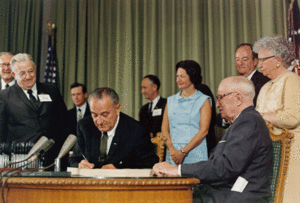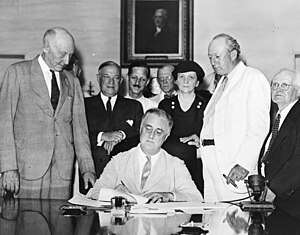Here is a text of an e-mail I received from HHS:
Affordable Care Act helps 32 health systems improve care for patients, saving up to $1.1 billion
12/19/2011 12:01 AM EST
Thirty-two leading health care organizations from across the country will participate in a new Pioneer Accountable Care Organizations (ACOs) initiative made possible by the Affordable Care Act, HHS Secretary Kathleen Sebelius announced today. The Pioneer ACO initiative will encourage primary care doctors, specialists, hospitals and other caregivers to provide better, more coordinated care for people with Medicare and could save up to $1.1 billion over five years
That headline really grabs you doesn’t it. Seems like it’s a done deal and the savings are in the bank. That’s far from the truth, of course. There is no new information here other than we know the names of some health care systems that will participate in this trial (“Pioneer”) effort for Accountable Care Organizations.
Don’t get me wrong, this is a good idea because if there is one thing we need, it is more coordinated care, but we have a long way to go before we start patting ourselves on the back with a success under the Affordable Care Act. We need it to work in terms of saving money and improving the care people receive. That’s a tall order even for spin doctors.
I have one major reservation on the ability for this program to succeed and that is the limited involvement by the patient and the limited ability for the ACO to manage all of a patient’s care. Working efficiently, the process should be virtually invisible to the patient, but that assumes the patient only uses health care providers within a given ACO. Will the ACO that receives financial incentives to provide efficient care be reluctant to make outside referrals thereby losing some of the control over patient care? In the long run there is no benefit to the ACO to do so, but this is one of the criticisms made of HMOs. Here is what HHS says about patient rights. I am concerned that we are again trying to have it both ways; efficient management of care and total freedom when seeking care. I don’t think that can work, let’s hope I am wrong.
Beneficiary Participation
Under the Pioneer ACO Model, beneficiaries do not enroll in an ACO. Primary care providers and other healthcare providers make the decision to participate in ACOs, meaning a beneficiary will not need to take proactive action to receive the benefits offered through an ACO. ACOs are required to notify beneficiaries of their participation, ensuring the beneficiary is aware of the new arrangement, and his or her rights described in this document. In addition, beneficiaries may affirmatively attest that their primary provider is in a Pioneer ACO, and can then be aligned with the ACO and benefit from the enhanced care coordination that it offers.
Beneficiary Rights and Protections
A beneficiary aligned to an ACO maintains complete freedom to visit any healthcare provider accepting Medicare, just as all Medicare beneficiaries participating in original, fee-for-service Medicare do. These beneficiaries do not need a referral to see a specialist outside the ACO. Unlike a managed care arrangement, like an HMO or a Medicare Advantage plan, a beneficiary aligned to an ACO is free to see any healthcare provider accepting Medicare at any time. In addition, beneficiaries maintain all the benefits to which they are entitled in original, fee-for-service Medicare.
Beneficiaries will have direct channels of communication to CMS to ask questions and relay concerns. Through the initial notice of participation, beneficiaries will be informed that they can call 1-800 MEDICARE at any time to ask questions about the program, alert CMS of any concerns they may have about the ACO. Beneficiaries will also be surveyed each year to assess their experience with the new program.
Here is a link to the list of the 32 organizations









Recent Comments